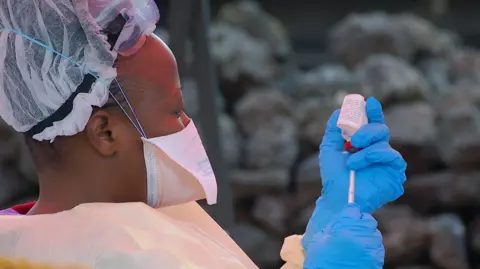In a significant development for global health, members of the World Health Organization (WHO) have successfully agreed on the text of a legally binding treaty aimed at improving the response to future pandemics. This new pact seeks to address the chaos and competition for resources that characterized the global response to the COVID-19 pandemic, facilitating cooperation among nations.
Key provisions of the treaty emphasize the urgent sharing of data regarding emerging diseases, which is essential for scientists and pharmaceutical companies to expedite the development of vaccines and treatments. For the first time, WHO will gain oversight of global supply chains for personal protective equipment (PPE), including masks and medical gowns.
WHO Director-General Dr. Tedros Adhanom Ghebreyesus heralded the pact as a "significant milestone" in the ongoing journey toward a safer and healthier world. He praised member states for demonstrating the efficacy of multilateralism, stating that even amidst global divides, countries can still unite to confront shared threats.
The treaty represents only the second such international agreement in the WHO's 75-year history, following a tobacco control agreement established in 2003. While the treaty's initial approval is a crucial step, it will require formal adoption by member states at the upcoming World Health Assembly next month.
Notably, the United States was not represented during the final stages of the discussions due to President Donald Trump's decision to withdraw from the WHO. As a result, the U.S. will not be bound by the treaty when it officially leaves the organization in 2026.
Under the terms of the agreement, countries are obligated to ensure global accessibility to pandemic-related drugs during future health crises. Furthermore, manufacturers must allocate 10% of their production of vaccines, therapeutics, and diagnostics to the WHO, with another 10% supplied at affordable rates.
The treaty also promotes the transfer of health technologies to developing nations, contingent upon mutual agreements, which fears local production of vaccines and medicines more viable. The core of the agreement revolves around a proposed Pathogen Access and Benefit-Sharing System (PABS), designed to facilitate more efficient data exchanges between pharmaceutical companies, thus accelerating research and development efforts in any forthcoming health emergencies.



















